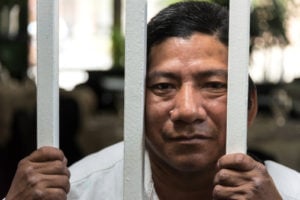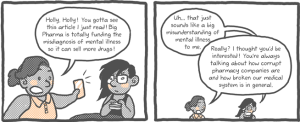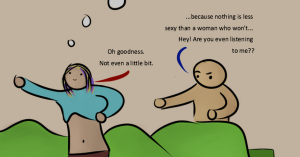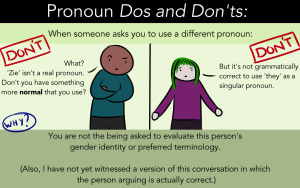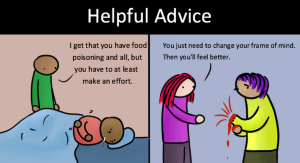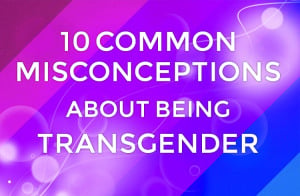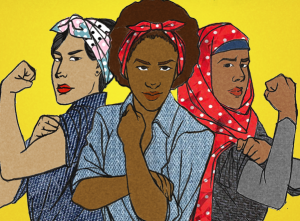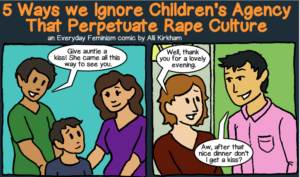The first time someone in my family was incarcerated, I was in grade school.
My mom didn’t know that I had overheard her phone conversations, so I said nothing – this was my secret.
Unfortunately, by the age of ten, I witnessed mothers, fathers, aunts, uncles, and siblings of my friends become incarcerated as well.
Some people were incarcerated for being undocumented in the US. Others were locked up for being found with weed in public, and some for not paying $1.50 on the train because, simply put, they couldn’t afford it.
But honestly, even with incarceration-facilitated loss being such a significant part of my life and community, I didn’t know the impact it would have on me in the long run.
By the age of ten, I was ashamed to have family members in prison and refused to tell anyone. I was also scared by the reality that all of my friends (who were predominantly undocumented) were having their families ripped apart.
I, like many others, didn’t have an analysis on the ways in which the prison-industrial complex works to target people of color, specifically, Black, Indigenous, poor, immigrant, disabled, trans, and queer communities.
Because I was so fearful of the stigma that comes with incarceration, I refused to open up to anyone. This debilitating fear of stigmatization created a cycle of silence and prevented me from accessing support from my own community.
When I was younger, the last thing I was thinking was: How do I support my community who has been incarcerated?
The truth is, I wasn’t in a position to fully show up for my family and friends who were incarcerated. As an adult, however, I have realized that I grew up in a community that was constantly terrorized by the police.
We were living in a constant state of anxiety, violence, and grief, and I struggled to actively be in solidarity and perform acts of allyship for incarcerated people in my life. And I couldn’t support my friends dealing with incarceration of their families either.
To this day, I still find myself stuck sometimes. I have to remind myself that feeling guilty or awkward won’t really change much. At these times, I have to think through the different resources I have at the moment and consider different ways I can show up for my incarcerated community.
In light of such tiring times, I want you to know that you aren’t alone.
You have a right to your confusion and frustration. You have the right to be angry. You have the right to have questions, and I hope you’ll allow me to give you some initial answers.
There are many ways in which we can support our friends, family, lovers, and mentors who are incarcerated.
For me, showing up was a process, and it will continue to be a process until the prison system is abolished.
There is no manual on how to actively show up for someone who has been incarcerated because everyone’s situation differs (you may be undocumented, you may be under eighteen, you may not have access to a phone, car, Internet, and so on).
However, the following list includes some practical ways we can show up for those who have been incarcerated. Not every suggestion in this list may be accessible to you at this exact moment (because, let’s be honest, the impact of capitalism is real).
But this is knowledge I’ve learned over the past few years in supporting, or failing to support, people in my life.
1. Send Money If Possible
I know it sounds so simple, but in practice, it’s a step that many of us don’t take.
Sending people money in prison is important because without money, it becomes incredibly difficult to get access to stamps, envelopes, or phone cards, which are all used for communication.
Sometimes, a person in prison needs to send a lawyer a written statement. How else would the person do it without a phone card, or access to paper, stamps, and envelopes?
In addition, money is also helpful in buying tuna, microwavable soups (which are upscale alternatives to the food received in prison, so I’ve heard), toothpaste, brushes, and so on.
The first time I deposited money into someone’s account, I had to chase down their full name, their booking number, and how much the person already had in their account so that I wouldn’t exceed their maximum funds’ limit.
However, once I located all this information, it took less than five minutes to process the deposit.
Don’t fear the process.
2. Answer Their Calls
Did you know that if someone who is incarcerated is calling you, and you are able to answer without paying anything, it means that the inmate has paid with their own money for that call?
I didn’t know that. Heck, I didn’t even know that I could open an account to receive calls and not have my family members, friends, or mentors waste their money.
When I first began being present in the lives of community members who were incarcerated, I would always hesitate in answering calls. The reality is that I didn’t want to not have something to say.
This means that I was making the situation about me and my discomfort to not have the right words as opposed to about the ways in which my community was oppressed by the prison industrial complex.
I had to let go of that discomfort – because the people calling me are human.
They have experiences they want to share. They take pleasure in exchanging stories. And they play an incredible role in my life.
3. Write Them Letters
Because calling is expensive – and not everyone has the money to deposit money into the beast that is the prison industrial complex – writing letters is a fantastic alternative.
The first time I wrote a letter to a friend, I sketched a photo, painted the photo, and mailed it out. A week later, the letter was returned.
Apparently, I had violated the rules by using a chemical formula that is most commonly known as paint from the 99-Cent store.
Before you write letters, make sure you visit the website of the facility where your family member, friend, mentor, or community member is housed. Some facilities will have more nuanced rules than others, but generally, they are equally bureaucratic.
In your written letters, catch them up on your life, ask questions, and share local and national news.
4. Visit Them in Prison
People need intimate human interaction.
Over the years, I’ve noticed myself failing to show up by visiting those in my life who are incarcerated.
Sometimes, my reality is that I don’t have access to transportation that can take me to the locations I need to get to, but I’ve learned to ask. I have friends who want to help me visit my family members, friends, and mentors and will take a few hours of their day to accompany me.
However, before I got to the point where I just blatantly asked people to drive me, I had to get over my fear of going inside a jail/prison/detention center.
I was terrified, because after having been undocumented for almost two decades, I knew that I risked my own incarceration by going inside a federal government building. Now, as I write this, I recognize that I have incredible privilege by being a green card holder.
However, if you are a US citizen or resident and going inside a jail/prison/detention center will not trigger your mental health, it’s time to begin to face our fear of the establishment.
Our community needs us.
Often, inmate rights are violated. And those who are undocumented, transgender, mentally ill, and disabled are more likely to be forced to live in solitary confinement.
Now, the most important part is to continually visit.
We must remember that as people who aren’t incarcerated, we have a particular privilege of having the ability to experience a diversity of human interactions on a daily basis.
Our community members don’t.
5. Ask Them If They’ve Made Friends in Prison and Visit Them, Too
Once you’ve gotten the hang of the process that is visiting someone in prison (which will include some mental preparation and self-reflection afterward), you’ll be ready to take the next step: visiting their friends.
Ask them if they’ve met anyone else who they would like you to visit. There are many people who, after the first few months, stop receiving visits from their family, friends, and/or partners.
You can change that.
I would suggest you bring a friend, so that you can visit someone new, and your friend can visit the person who you’ve been visiting.
This is how community is built.
What’s important is that you genuinely put in the work. Allyship and solidarity are actions, not just theoretical concepts.
6. Remind Them That They’re Powerful and Resilient
After one of my closest friends was sent to a federal high-security prison – having already been imprisoned in solitary confinement at an immigration detention center – my friend began to experience doubts about her value and self worth.
We need to remind those inside that they are powerful and resilient for surviving inside a system that is meant to kill us.
In the case of imprisonment (read: captivity), power can look like getting up in the morning. Power can also look like deciding to call someone if you’re allowed.
Power can also look like filing a complaint against a guard. It can look like choosing not to speak at all. Power can look like participating in a hunger strike or creating your own makeup.
The point is that our incarcerated community is powerful and resilient. Every moment that passes, they’re demonstrating to us that resistance is possible.
Don’t take their existence lightly. What our incarcerated community has been doing is creating a blueprint for all of us to follow on how to fight, resist, and survive when the state attempts to fool us into thinking we can’t.
Yes we can.
7. Tell Them About Your Life
They want to know how you’re doing, too.
When I began to communicate with family and friends in prison, I felt awkward. I didn’t want to share much about my life, let alone my sex life, or what I did for leisure.
I felt this way because I knew that they didn’t have the same privileges as me: People who are in prison can’t pick-and-choose their bedtimes, meals, hours spent in the sun, and so on. So I felt that I shouldn’t share those aspects of my life.
I was wrong.
One of my mentors who is currently in an immigration detention center constantly asks me about what I’m doing for fun. They lecture me on how I need to let go and enjoy life because, the reality is, no matter how oppressed I am, there are still moments of joy to indulge in.
In fact, some of those moments of joy are parts of my highly awkward and quirky dating life, which I have gotten quite used to sharing.
You see, the world doesn’t stop when someone is incarcerated, so you must not hold back in what you share.
When you share your life experiences, you might be quite surprised by everything your family member, friend, mentor, partner, or community member will tell you.
I’ve learned a lot about their lives, what they’re thinking about, and all those funny, enraging, curious, awkward, and just plain, obscure interactions or stories they’ve encountered when I invite them into the intimate moments of my life.
8. Exchange Jokes
As I said in the previous point, we need to find moments of joy and indulge in them.
My first time going to visit a friend, I was awkward and quiet. I didn’t know what was appropriate. I wondered: Do I talk about the case? Do I ask them what they need? Do I smile? Can I tell a joke?
You know, every time I’ve gone to see someone, I notice that they’re as happy to see me as I am to see them. We get to pick up where we last left off.
Sometimes, that may be completing a half-finished joke from my previous visit.
What I’m trying to say is, we need to not treat our community members as if they have no feelings. It’s okay (and highly encouraged) to share jokes, exchange smiles, and share joy.
9. Learn About Anti-Prison Organizing – And Share It with Them
It’s important for you to learn that there are communities actively working toward abolishing the prison system.
Whatever state you are in, research what organizations are doing, and share it with those in your life who are in prison. They need to know that they’re not alone, and that people are working on their behalf.
The prison system is not a transformative tool for our communities.
In fact, it is the opposite. The system is setup to tear apart communities and to destroy people’s spirits.
We need the spirit of abolition in order to continue resisting.
10. Open Up to Others About Your Loved One in Prison
At the end of the day, you can’t do this alone.
You’ll need support from your local community.
It’s important for us to share what we know about the prison system. We need to uplift the stories of those who are in our lives, and share the knowledge that we’ve learned.
Yes, it’s scary to think about opening up to people about having family members, friends, mentors, and/or a partner in prison, but what we need to do is shift culture.
People who are imprisoned are often stigmatized as criminals, dangerous, aggressive, social exiles, and much more – even after they’ve served their sentences.
However, you and I know that there are many reasons why people have been targeted and incarcerated, which is why opening up may be the next step to take in our journey.
[do_widget id=”text-101″]
Alan Pelaez Lopez is a Contributing Writer for Everyday Feminism and an Afro-Indigenous migrant from Oaxaca, Mexico. They write essays, poetry, and non-fiction pieces on Blackness, queerness and immigration. Alan is currently pursuing a PhD in Ethnic Studies and is a member of Familia: Trans, Queer Liberation Movement. Connect via their website, Instagram, Twitter, and check out their jewelry store. Read their articles here.
Search our 3000+ articles!
Read our articles about:
Our online racial justice training
Used by hundreds of universities, non-profits, and businesses.
Click to learn more


